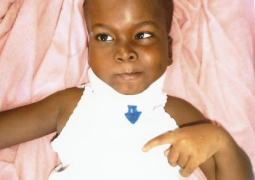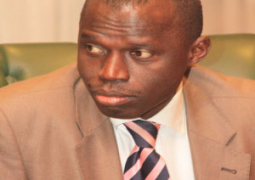The National Assembly Chairman of the Select Committee on Education and Training and member for Serekunda West, Hon. Sulayman Joof,has informed deputies that education through medium of Arabic was hitherto the sole preoccupation of the traditional learning centres known as Daaraas and Majilisas.
Hon. Joof, who presented his committe's report on Wednesday during his committee's visit to forty-four Madrassa schools selected randomly throughout the country from 17 to 30 May 2010, said that most of the Madrassas visited had all the levels; that is from Early Childhood Development Centers (ECDC), to Lower Basic School (LBS), Upper Basic School (UBS) and Senior Secondary School (SSS).
The 1997 constitution of the second
"This education select committee is one such committee which enables its Members to monitor implementation of policies in the domain of education and training, as well as to scrutinise what is being taught and how it is being taught at the various echelons of the education system," he said.
Hon. Joof told deputies that during their two-week visit to Madrassa schools they were concerned with the following thematic areas: right to free and compulsory education, right to non-discrimination, right to adequate infrastructure, right to quality trained teachers, right to safe and non-violent environment, ECDS without nannies, right to relevant education, right to know your rights, right to participate, right to transparent and accountability schools, and right to quality learning.
The General Secretariat for Islamic and Arabic Education (Ammanatul Amma), Hon. Joof stated, was established in 1996 as an apex institution to oversee, monitor and supervise the operations of Madrassa institutions registered under it throughout the country.
"The rationale behind the creation of the institution is to streamline the curriculum for Arabic education with a view to mainstreaming it within the context of the national education system," he noted, saying that the Gambia government gave recognition to the institution in 2005 by giving it a subvention of D25,000 to cover their administrative overheads as well as to pay the English Language teachers' salaries posted to some Madrassa schools, which was increased to D248,000 in 2009.
"It is in this Secretariat who recruits English teachers on behalf of the MoBSE and they also determines the scale of their salaries, thus PTC teachers are paid D1,100.00 while those holding the HTC certificate are paid D1,700.00 and graduate teachers D2,000.00 per month," he pointed out.
To register with the secretariat, Hon. Joof says, Lower Basic Madrassa schools have to pay a fee of D300, Upper Basic Schools D500 and Senior Secondary Schools D1,000.
"At present there are 168 Madrassas registered with the secretariat but owing to financial constraints some of the Madrassas do not pay the required fees thereby creating financial constraints for the secretariat, which is in need of financial resources to buy furniture for its offices, cupboards, filing cabinets, photocopiers and all other materials required to properly equip the secretariat," he revealed.
Hon. Joof finally thanked President Jammeh for sponsoring and encouraging for the first time 'Quranic recitation competition' among Arabic school students in the country.



